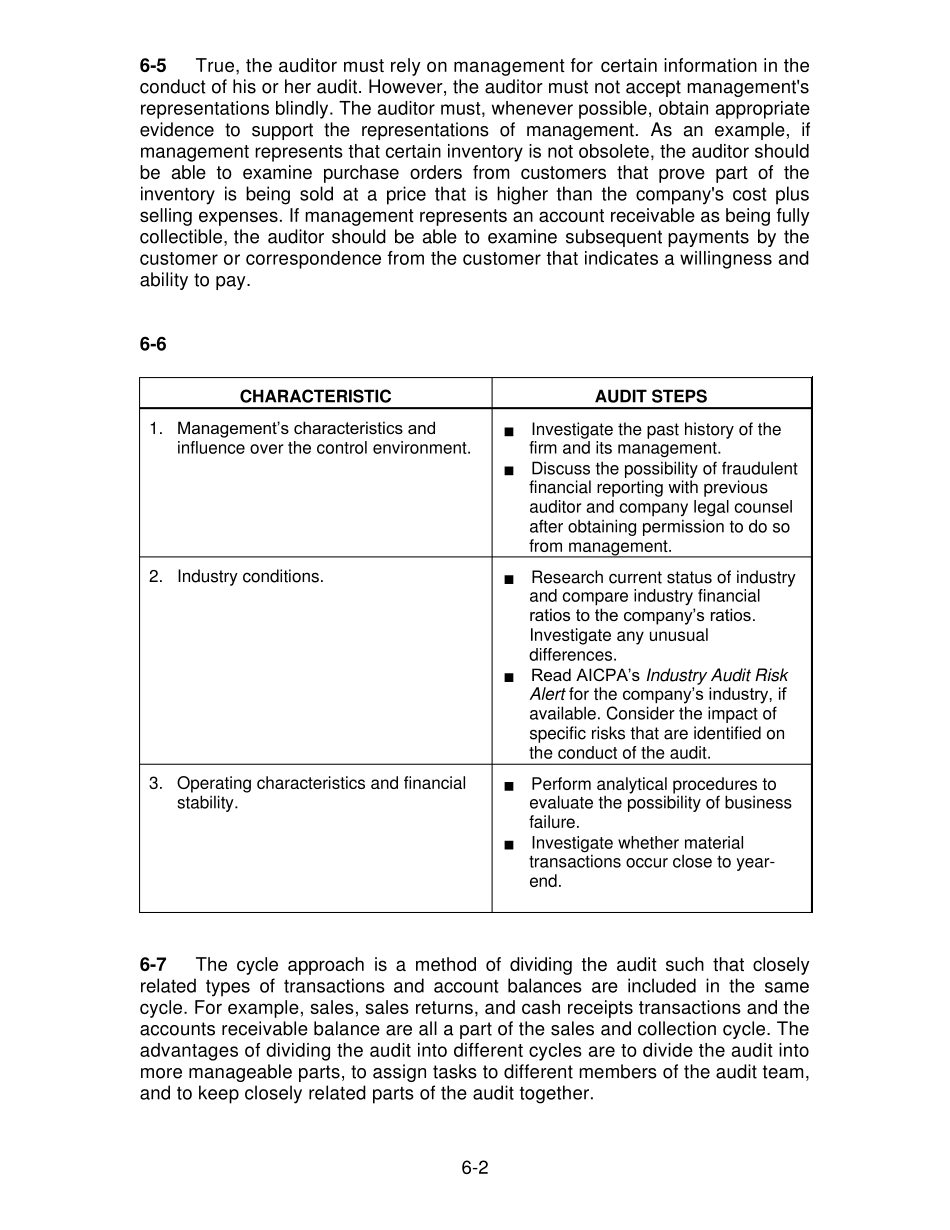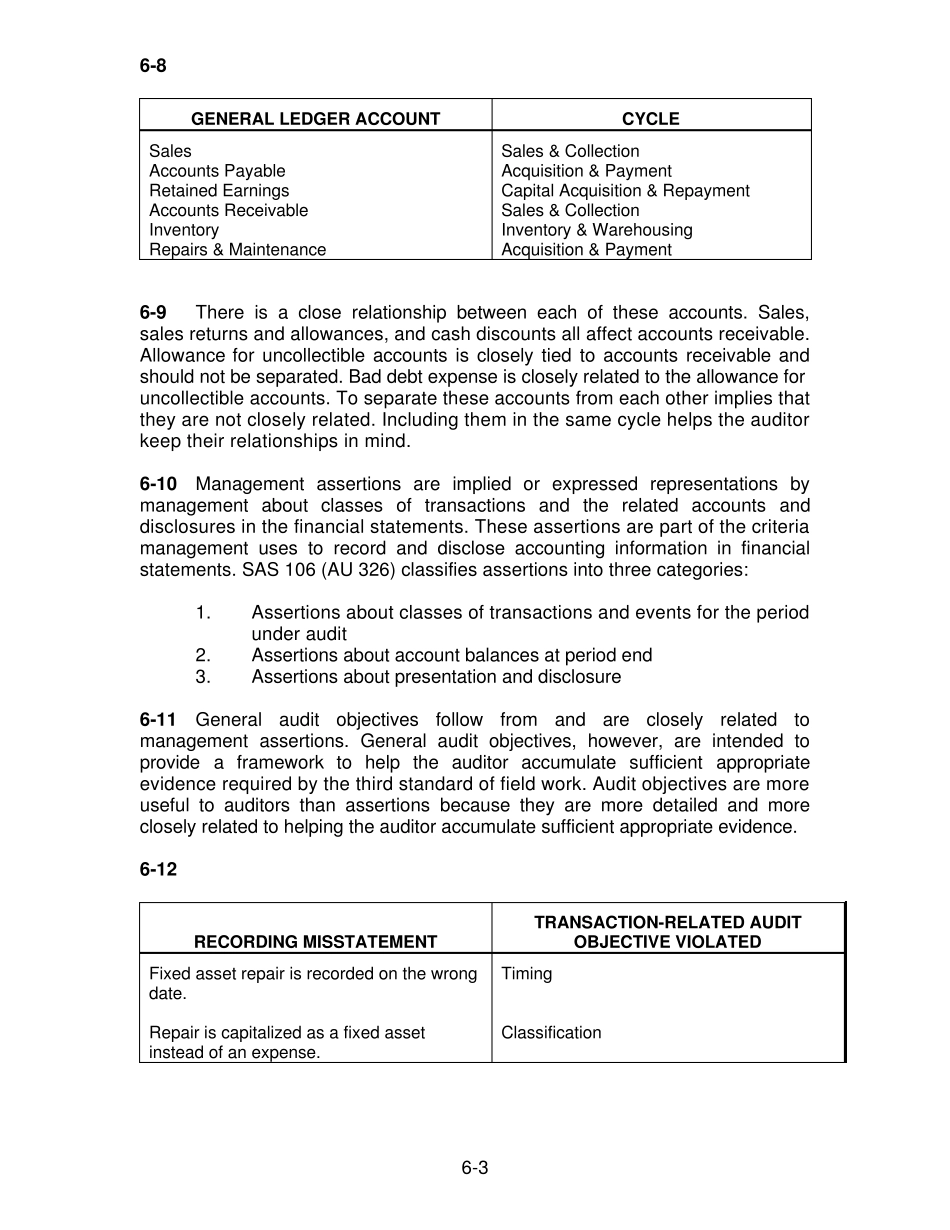6-1 Chapter 6 Audit Responsibilities and Objectives Review Questions 6-1 The objective of the audit of financial statements by the independent auditor is the expression of an opinion on the fairness with which the financial statements present financial position, results of operations, and cash flows in conformity with generally accepted accounting principles. The auditor meets that objective by accumulating sufficient appropriate evidence to determine whether the financial statements are fairly stated. 6-2 It is management's responsibility to adopt sound accounting policies, maintain adequate internal control and make fair representations in the financial statements. The auditor's responsibility is to conduct an audit of the financial statements in accordance with auditing standards and report the findings of the audit in the auditor's report. 6-3 An error is an unintentional misstatement of the financial statements. Fraud represents intentional misstatements. The auditor is responsible for obtaining reasonable assurance that material misstatements in the financial statements are detected, whether those misstatements are due to errors or fraud. An audit must be designed to provide reasonable assurance of detecting material misstatements in the financial statements. Further, the audit must be planned and performed with an attitu de of professional skepticism in all aspects of the engagement. Because there is an attempt at concealment of fraud, material misstatements due to fraud are usually more difficult to uncover than errors. The auditor’s best defense when material misstatements (either errors or fraud) are not uncovered in the audit is that the audit was conducted in accordance with auditing standards. 6-4 M...


